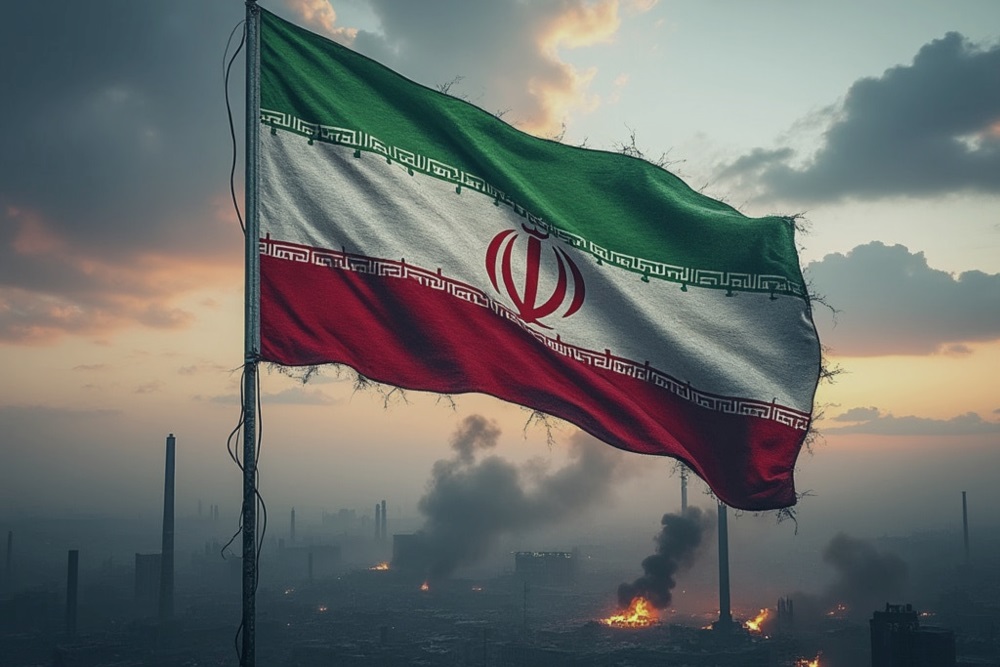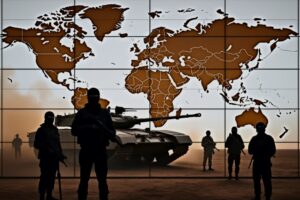
The Israeli strike on Iranian military sites presents Iran with some troubling realities, pushing Tehran into a difficult strategic position.
The attack not only inflicted physical damage on key Iranian assets. It also exposed Iran to further strikes, shattered the regime’s sense of security, and highlighted the diminishing role of Hezbollah as Iran’s protective shield.
Here are three key problems Iran now faces in the wake of the assault, the first large-scale IDF strike in Iranian territory.
Iran left exposed
The Israeli attack inflicted serious damage on key Iranian military sites, including air defenses shielding the country’s most sensitive facilities. This reportedly includes a Russian-made S-300 system securing Tehran’s international airport.
Initial assessments suggest that Iranian radar stations and anti-aircraft batteries were knocked out, with Iran unable to intercept most incoming missiles. Analyst Ron Ben-Yishai says that the attack neutralized air defenses in crucial areas, leaving Iran dangerously exposed.
Later, Ynet reported that the attack focused on hitting Iran’s most advanced air defense systems, to ensure operational freedom in future operations.
The damage to Iran’s defensive capabilities set the stage for even larger strikes and presents Tehran with a grim dilemma, says ex-IDF Intelligence Chief Tamir Hayman.
If Iran retaliates, it risks more punishing Israeli strikes, he wrote. On the other hand, a lack of response could signal historic weakness.
Despite promising swift retaliation for any Israeli attack, Iranian leaders did not order immediate reprisals, taking the time to consider their options. But at this point, and given the glaring vulnerabilities exposed by the strike, Iran seems to have no good choices.
Blow to regime’s reputation
Beyond physical damage, the strike also delivered a blow to Iran’s psyche and to the regime’s standing. Strategic expert Danny Citrinowicz noted that for the first time since the Iran-Iraq war in the 1980s, Iran suffered direct and serious military attacks on its soil, challenging a core pillar of the regime’s legitimacy.
Writing on X, analyst Roya Hakakian said that Israel’s strikes rekindled troubling memories of the war with Iraq. One of the regime’s strongest selling points was to ensure security, free from air raid sirens and attacks, but that promise has now been shaken, she wrote.
Moreover, the fact that Israel has crossed the psychological barrier of striking in Iran for the first time adds to the pressure, Citrinowicz added.
Overall, the attack signals a shift in the strategic landscape, undermining the regime’s narrative that Iran is untouchable.
Hezbollah shield lost
The strike also exposed the weakening role of Hezbollah, Iran’s most powerful proxy. For years, the group was built up to serve as a deterrent, promising to launch a massive assault if Israel ever attacked Iran directly. But that threat failed to materialize in the hours following the attack.
In fact, Israel’s strike was the direct result of the weakness of Hezbollah, which was supposed to be Iran’s insurance policy against such attacks, Citrinowicz said. But in its current state, after disastrous setbacks in its ongoing conflict with Israel, Hezbollah is a shadow of its former self.
Only a few months ago, the assumption was that any Israeli strike in Iran would trigger thousands of rockets from Hezbollah. But the group’s initial response was limited, consisting of some 150 rockets and a few drones launched into Israel
The weakening of Hezbollah has further shifted the strategic balance, making it easier for Israel to attack Iran without fear of major retaliation. With Hezbollah struggling, Tehran is increasingly vulnerable and left without the protective buffer it once relied on.
Tehran will now have to find a way to restore Hezbollah’s power and stature, or come up with a reliable alternative to deter Israel. One way or another, for the foreseeable future Iran has been left without the external support that Hezbollah once provided.


